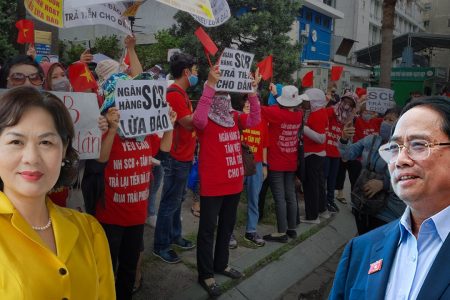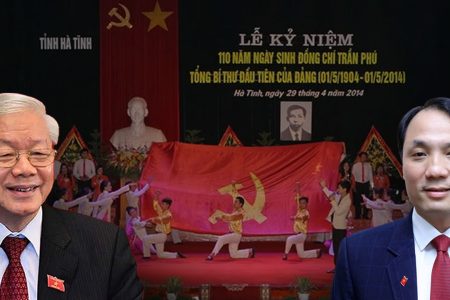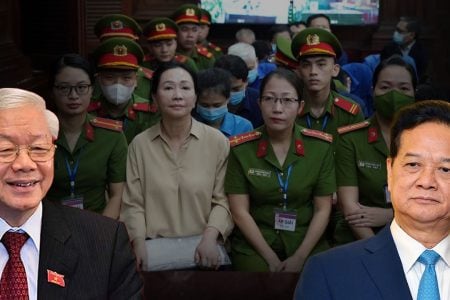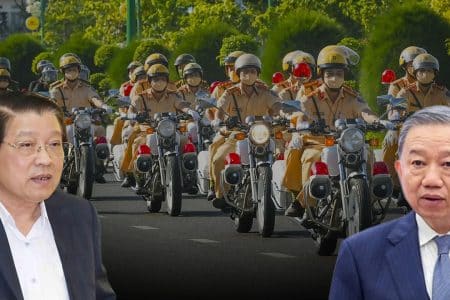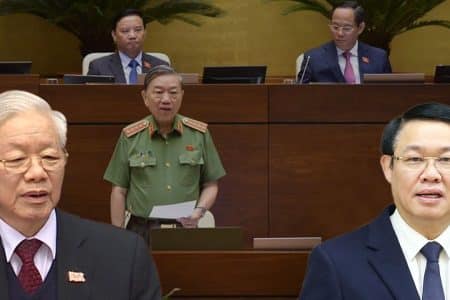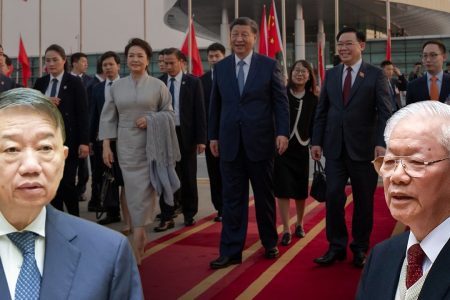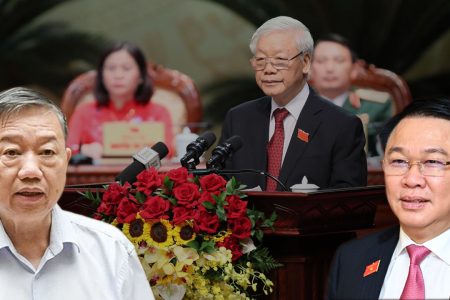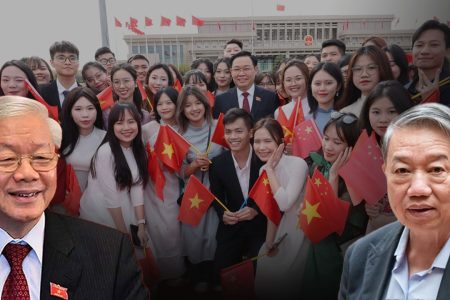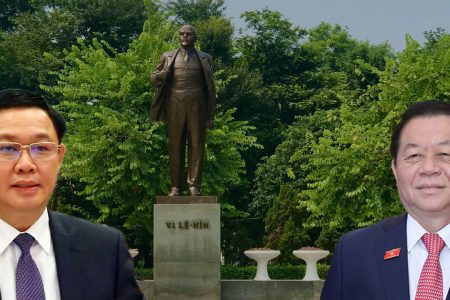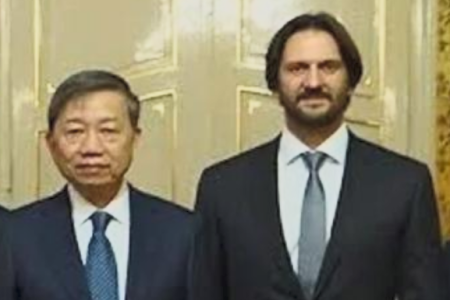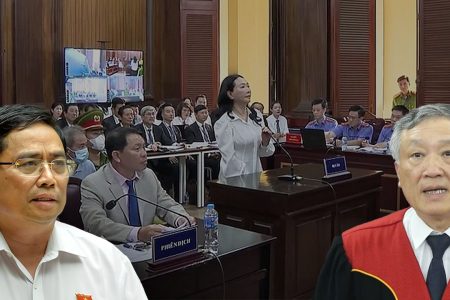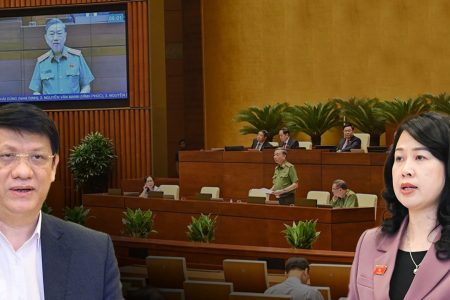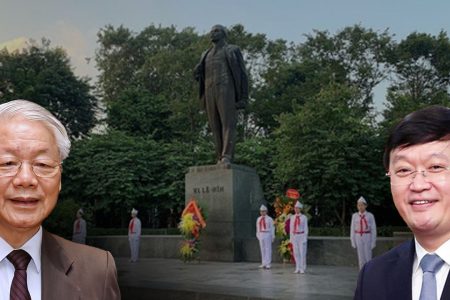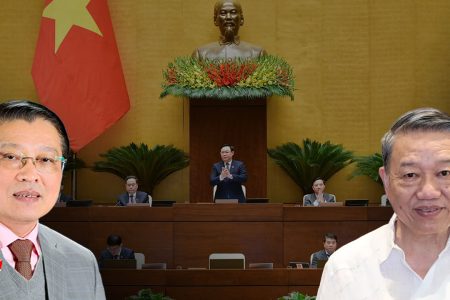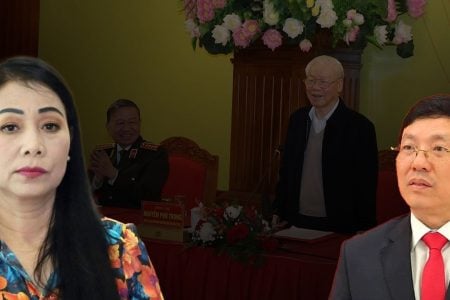Standing Secretary of the ruling Communist Party of Vietnam (CPV)’s Secretariat Vo Van Thuong recently signed Regulation No. 65-QD/TW of the Politburo on staff rotation.
Accordingly, the Politburo and the Secretariat will decide on the rotation of cadres at all levels, including Leadership and management officials at all levels; Key leaders at the provincial and district levels who are not local, and officials such as the chairperson of the People’s Committee, the chiefs of the People’s Courts, the People’s Procuracies, police departments, inspection agencies, finance, tax, customs, etc. at provincial and district level.
Talking to RFA on May 9 from Hanoi regarding this decision, former Deputy Minister of Natural Resources and Environment Dang Hung Vo, commented:
“The cadre work is decided by the Party, and the government side only decides on assignment, at some levels, the Prime Minister signs, at levels, the head of the agency signs, or the chairman of the People’s Committee signs for example… but officials are decided by the Party. And just now there was a story that the Party had a deeper interference of cadre work, then I think that due to the fact that current cadre work is inadequate, numerous cadres from local and ministerial levels have been convicted of criminal offenses, evidence showing that the staff work is not standard. Of course, there is also the other side that the legal system has loopholes, so people commit wrongdoing easily. Therefore, the Politburo has made certain adjustments to personnel work.”
In a one-party totalitarian country like Vietnam, it has long been obvious that the ruling party decides everything. However, normally in the past, the party took direct decisions on senior leaders of the government and the high-ranking Party cadres only. Is there any sign of this change?
Journalist Vo Van Tao, when answering RFA from Nha Trang on May 9, said his opinion:
“Information about the latest regulations on management of senior officials, local leaders, Procuracy, Courts, Customs, Taxation… then I think this is a reaction that is roughly lack of capable cadres. Actually, the communist regimes tend to control everything, but for foreign affairs… they give birth to a dual apparatus of government, even the National Assembly and the Fatherland Front, etc. but in fact, it belongs to the Party. The party controls everything. This is also a way to reduce responsibility for the most senior officials of the party so that when mismanaging, there is room to bear. The party avoids scandal, indirectly like that.”
But according to journalist Vo Van Tao, this is contradictory, he cited:
“For a long time, the Party has also publicly declared that cadre work belongs to the Party, only the Party decides. This time they were more specific, and I think it’s a shortage of cadres because there have been many high-ranking cadres who committed mistakes so much that they had to go to jail, just now, more than 40 police and army generals have been imprisoned for criminal offenses, even members of the Politburo or some ministers. So now they are startled, the branches that can be corrupt such as the Procuracy, Court, and Customs are tightened, and they hope the quality of cadres will be raised. But I think this is a sloppy move because of the fact that the party has decided for a long time while the government has no power on cadres issues.”
Therefore, journalist Vo Van Tao said that this change is only a formality, adding confusion, overlapping, and complexity… but essentially nothing changes.


There is an opinion in the public that if the Party wants to manage everything of the State like that, why not merge the dual system of the Party-State?
For a long time in Vietnam, merging the titles of the Communist Party with government agencies into one has been discussed. So is this change in staff rotation a sign of consolidation?
Former Deputy Minister Vo further commented:
“The unification of the Party and the government has been discussed for about 20 years now, in order to build organizations and institutions. It seems that the intention to innovate and learn in the spirit of China is a two-door. That is, the position of cadre has a person in charge, representing both the Party and the State. However, there are also many opposing opinions, that if that is the case, it will easily lead to monopoly, so there must still be two roles, controlling each other, more closely. So far, Vietnam has not implemented the ‘one house, two doors’ mechanism…”
In the current organizational structure of the Vietnamese communist dictatorship, for every part of the government, there is a part of the Party at the same time. This is considered a model of the communist party leading all activities of the society. Such overlap has created a huge payroll for the public administration sector in Vietnam, consuming a lot of the state budget.
Dr. Ngo Tri Long, an economic expert now living in Hanoi, said that lean is necessary:
“The issue of unification has been discussed for a long time. The downsizing of Vietnam’s administrative and political system is irreversible, because the public debt is very large and the overspending is high, so it must be streamlined to reduce recurrent costs.”
According to Mr. Ngo Tri Long, with the constraints of the national budget, the unification of the Party and the government must definitely be done, but it may depend on a fast or slow route depending on the actual situation.
Thoibao.de (Translated)




